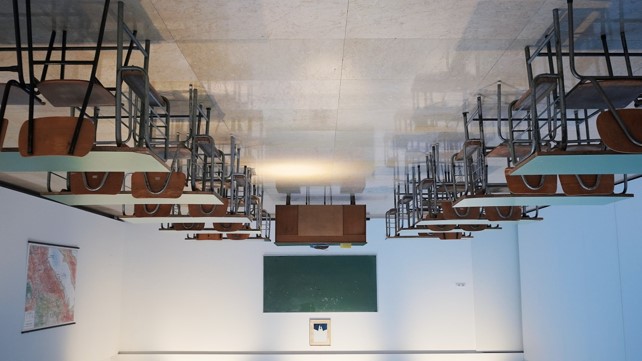
I personally know people who flip houses. In layman’s terms, they buy and work on a house with the intent to sell it for a profit. With the recent increase in housing costs and materials, this is becoming even more common. The term “flipped” in the classroom, on the other hand, means something else entirely.
A flipped classroom is “the moment when you allow your students to struggle, ask questions, solve problems, and do the “heavy lifting” required to learn the material.” In other words, it is when we stop talking and “flip” the work to them instead (Faculty Focus newsletter, 3/25/13 edition).
Flipped Classroom Opportunities
There are several key opportunities when flipping the classroom in Sunday School can be greatly beneficial:
- when you see boredom slipping in,
- when you see lack of understanding,
- when you want learners to grasp something that is more difficult,
- when you want involvement and learning energy to increase,
- when you want them to focus on the most critical part of the lesson,
- when sharing together will create greater evaluation and further thinking.
Before I share several ideas, it is important to lead gently in this direction if there is little history of attender involvement and participation. If lecture has been your main approach, begin by flipping for no more than five minutes. Choose a simple flipping option rather than a more complicated one at first.
Options to Address Opportunities
What are some ways to flip the classroom? Consider which of these options might be useful with your group. Take a risk, stretch your learners, and try the following:
- in pairs, have them respond to a critical question;
- in groups of 2-3, have them share where they struggle related to the truth of the lesson and how they could respond;
- pair off and have learners practice an application activity or response related to the lesson;
- read a life or news story and ask subgroups to prepare a Christian response;
- give individuals an index card on which to write open-ended questions related to the lesson, collect anonymous cards, shuffle, and distribute to groups;
- divide into groups of 3-5 to work through a case study (a story with problems related to the truth of the lesson);
- divide into debate teams to consider various sides of an issue;
- and so many more possibilities.
Take advantage of flipping your Sunday School classroom. Capture attention. Focus attention on key learning and issues. Help them struggle to learn and apply. Increase involvement, attention, retention, and application. Generate deeper thinking. Lead them to obey. Make disciples. Be revolutionary!
Leave a Reply